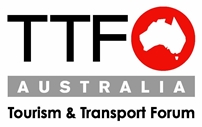
Rising unemployment sees fewer people taking public transport in Perth
Growing unemployment in Perth has seen a substantial decline in the number of local residents using public transport, according to a new report released by the Tourism & Transport Forum Australia (TTF) and L.E.K. Consulting.
The TTF-L.E.K. Consulting Public Transport Barometer provides up-to-date insights into the performance of major metropolitan public transport networks in Australia and tracks just how many Australians are choosing to take public transport in their day-to-day lives.
TTF CEO Margy Osmond said that Perth’s increasing unemployment both in the mining industry and in the CBD has seen a four per cent decline in rail patronage and three per cent decline in bus patronage.
“With Western Australia’s unemployment rate rising to its highest level in 16 years, we are seeing less and less people using public transport to get to and from work,” Ms Osmond said.
“However, despite the decline, in 2017 Perth residents took more than 60 million rail trips and 80 million bus trips, but there are still concerns that the number of people hopping on the bus and train are declining at a rate faster than just about any capital city in Australia.
“There have been some serious gains in the number of people choosing to catch the ferry, however, with a 25 per cent increase in ferry patronage since the opening of Elizabeth Quay in 2016.
L.E.K. Consulting Senior Partner, Simon Barrett, said this edition of the Transport Barometer focused on rising congestion levels in Australia’s capital cities and the subsequent impact on public transportation, and ranked Perth the 105th most congested city in the world.
“While Perth obviously does not have the congestion problems of many other capital cities – it is still a problem,” Mr Barrett said.
“Perth’s congestion adds an additional 25 minutes on to the daily commute of the average local resident – or 96 hours a year.
“Increasing congestion levels in Australia are estimated to cost $16.5 billion to metropolitan cities – $6 billion in private time costs, $8 billion in business time costs, $1.5 billion in extra vehicle operating costs and $1 billion in additional air pollution costs.
“These are avoidable costs. This paper sends a clear message to the WA and Federal Governments that without increased investment in key congestion-busting projects the cost of congestion and the negative impact on people’s day-to-day lives will continue to skyrocket.”
